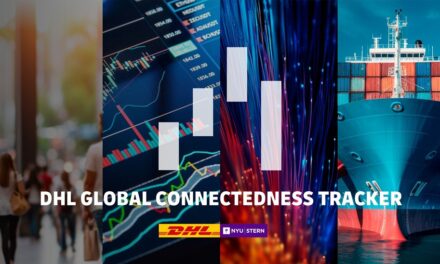
DHL's Hickler shares views on shipper service, markets
When it comes to understanding the many facets of supply chain operations, few have DHL Express CEO Hans Hickler beat. With more than two decades of experience in the transportation and logistics industries—first at the NOL Group and its APL and APL Logistics subsidiaries— prior to joining DHL Express in 2004, it's fair to say that Hickler has a very good handle on what the company's customers want: attention and service, for starters. Hickler, who replaced John Mullen as DHL USA CEO in September 2006, is charged with making sure the company is doing everything it can to increase customer awareness of express and logistics offerings to ensure that it is considered as a viable entity by shippers in a crowded marketplace. LM senior editor Jeff Berman recently spoke with Hickler about the steps DHL is taking to increase market share, differentiating itself in the market, and “putting the service back in shipping.”
LM: Much has been made of DHL's commitment to improving customer service in the U.S. How are things going on that front?
HH: The important thing to note is that we are not claiming victory. We are putting a stake in the ground. Our industry—whether it is 3PLs, supply chains, or broader logistics—does not have a Starbucks- or Ritz-Carlton-type equivalent that says this company really gets the customer and is all about driving a better and unique customer experience. That is what we are targeting.
LM: How are you doing that?
HH: By coming in with the realization that customers in general are not thinking that our industry is about the customer. But we think there is a place for that, and our customers are telling us that. Bain & Company surveyed 360 companies and found that 80 percent of those surveyed said their customers were receiving superior service. That means there is a huge mismatch there, and we want to change that in our industry. It is a bold move, but I think that is what our brand stands for, and we have to do things to stand behind that.
LM: What steps need to be taken for DHL to stand behind that belief?
HH: We believe we need to shift from a performance paradigm to one of service. This industry has been one that is all about incredibly high performance levels, whether it is express, package delivery, or overnight. And it is in relation to how our processes are engineered, its relation to the IT capabilities, or just how we can deliver the product. It is a very performance-oriented discussion, and that is ingrained in the actual fabric of the product that the differentiation lies in the service paradigm. Those are the chips needed to get into the game; we need to be highly reliable across all dimensions, but that doesn't really define anything that would “wow” the customer. That dimension is service.
LM: A lot of attention has been given to the state of our country's transportation infrastructure, with congestion hitting maximum capacity and politicians and industry associations calling for a “national transportation policy” to address these issues head-on. What needs to happen to move in the right direction?
HH: The issues are the same as they have been since the West Coast labor strike occurred a few years back. The West Coast can very quickly become a bottleneck to transportation throughput, be that port throughput or road or rail infrastructure. In terms of national policy, understanding what the choke points are in how freight flows [for rail and trucking infrastructure component] is critical. From a customer standpoint, there is a lot of dialogue happening around adjusting the movement of goods and the location of distribution centers. They're also looking at locations on different coasts to hedge themselves against problems. This is as much about customers looking at their supply chains as it is about legislation.












